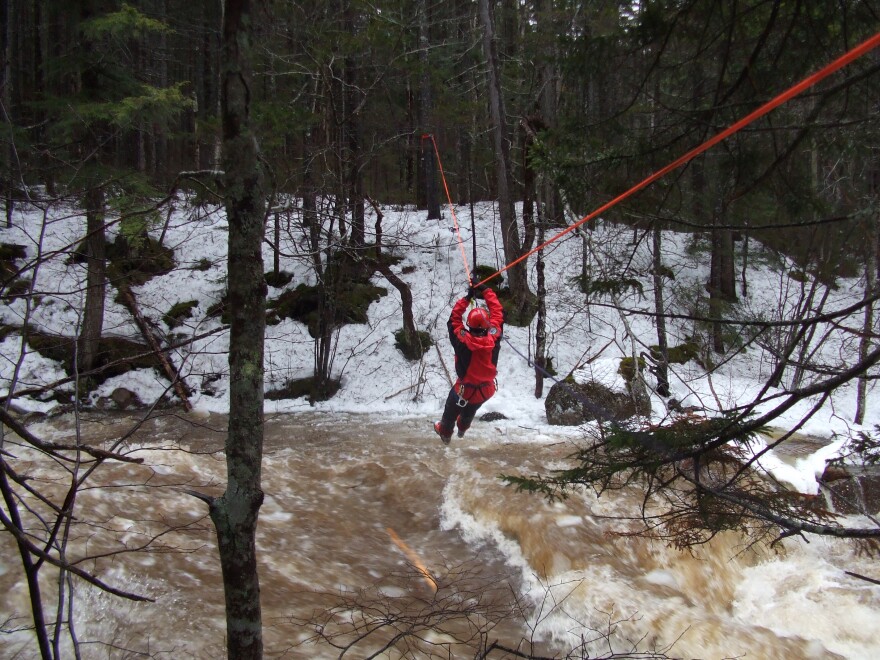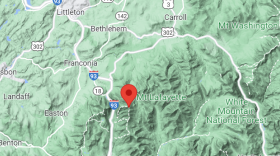Legislators want to talk to federal officials about paying for hiker rescues in the White Mountain National Forest.
But the head of the state Department of Fish & Game isn't optimistic that will solve his agency’s money problems.
Fish & Game executive director Glenn Normandeau says half of the state's search-and-rescue operations are for hikers -- largely in the White Mountains.
When rescues are preventable and caused by negligence, the state can send hikers the bill. Normandeau says that can happen for several dozen rescues a year, but the state can’t always recoup all the costs.
And he says there are as many as 200 rescues total a year, most of them paid for by Fish & Game.
The funding for this comes first from a dollar fee collected off each powerboat, snowmobile and off-road vehicle registration, and from the sale of Hike Safe cards.
Normandeau says that generates around $250,000 a year for search and rescue staffing and equipment. Most years, that’s not enough.
So the remaining costs – which can range from a few thousand dollars to $100,000 a year – come out of the Fish & Game Fund, made up of hunting and fishing license fees.
Normandeau says the fund makes up more than a third of the department’s budget and is meant to pay for conservation work, law enforcement and research. He estimates search and rescue has drained around a million dollars from the fund over the past 15 years.
“The [fund] virtually always lives in the red, let’s put it to you that way,” he says. “But people still need to be paid, so the bottom line is, the fund goes in the red but the cash actually comes out.”
Normandeau and the rest of a state study commission, formed by the legislature this year, wrote about the issue to New Hampshire's Congressional delegation last week.
(Click here to read the letter, from the SB48 Commission.)
The letter suggests the U.S. Forest Service could reimburse the state for rescues that happen inside the federally-managed White Mountain National Forest. It asks the delegation for help negotiating with federal regulators.
U.S. Sens. Maggie Hassan and Jeanne Shaheen both say they’ll do what they can.
“I encourage the Departments of Agriculture and Interior to engage with the New Hampshire Fish and Game Department to discuss how to strengthen their partnership and how they can better work together to protect public safety and our natural resources,” says Hassan in a statement.

But Normandeau says he’s asked the U.S. Forest Service for help in the past, without success. He says it would take a Congressional appropriation to get federal help with search and rescue.
"I doubt they're excited about setting an example whereby every state, every jurisdiction in the country will be wanting the same,” he says.
Even if federal money does come into play, Normandeau says he doesn't want the Fish & Game fund paying for search & rescue at all.
“Those monies should be getting used for what they should be used for, which is conservation, conservation law enforcement, fish and wildlife management, et cetera,” he says.
Instead, he says his agency would benefit from more consistent funding from the state legislature – such as from the meals and rentals tax, which brings in more than $300 million a year, according to the Department of Revenue.
“You would think that a hundred or two grand a year to make search and rescue whole would not be too big of a bar to reach,” Normandeau says.
Fish & Game press releases show more than a dozen hiker searches and rescues since the start of September alone.
They have involved everything from a man with a leg injury and a fatigued teenage girl both carried off Mount Monadnock, to an unprepared hiker stuck on the summit of Mount Cardigan, to a hunter found alive and up to his neck in a mud pit after a multi-hour search on foot and by water.
Normandeau says the most serious rescue operations can last days and cost as much as $50,000 apiece.








